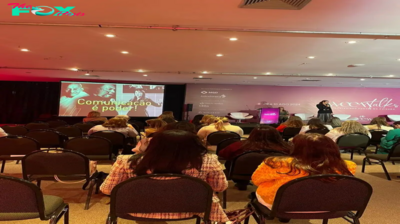Entertainment
A BBC Philharmonic Promenade which promised a lot, frankly under-delivered – Seen and Heard Worldwide

 United Kingdom PROM 16 – Cassandra Miler, Shostakovich: Lawrence Energy (viola), BBC Philharmonic Orchestra / John Storgårds (conductor). Royal Albert Corridor, London, 31.7.2024. (CC)
United Kingdom PROM 16 – Cassandra Miler, Shostakovich: Lawrence Energy (viola), BBC Philharmonic Orchestra / John Storgårds (conductor). Royal Albert Corridor, London, 31.7.2024. (CC)
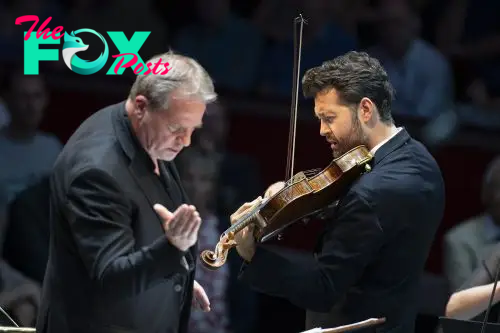
Cassandra Miller – I can not love with out trembling (Viola Concerto, 2023)
Shostakovich – Symphony No.4 in C minor, Op.43 (1935/6)
So to my first BBC Promenade of the season and my first expertise of the music of Cassandra Miller. Born and raised in Canada. She has spent most of her mature life in Europe; she lists Michael Finnissy as one in all her lecturers. Her music takes inspiration from a variety of musics, from Callas’s ‘Vissi d’arte’ to the Mozambican musician Zhukake Masingi to, within the current occasion, the violinist Alexis Zoumbas and his ‘moiroloi’: improvisatory music characterised by its keening gestures themselves anchored within the funeral laments of the ladies of Epirus.
Miller states that ‘this concerto is concerning the primary human must lament, that’s, to talk the space and sing the separation’. Every part is headed by a citation from the French thinker Simone Weil (1909-43): 4 ‘verses’ adopted by a cadenza. Thus far, so promising. A touch of a way of the traditional, and of a musical examination of the necessity to launch. The title of the piece comes from ‘verse 2’; the others are ‘To like purely is to consent to distance’; ‘Buried deep beneath the sound of his personal lamentations is the pearl of the silence of God’; ‘Completely unmixed consideration is prayer,’ and ‘Stars and blossoming fruit timber utter permanence and excessive fragility give us an equal sense of eternity’.
All of which is kind of a protracted introduction to this BBC co-commission with Brussels Philharmonic, Nationwide Arts Centre (Ottawa) and the Scottish Chamber Orchestra. Having Lawrence Energy as soloist is luxurious casting. And Energy’s management of his instrument ceded to none. Expressive in his keenings, fully in charge of the much-used higher register and exuding a whole understanding of Miller’s soundworld, this was a consuMMAte efficiency.
If solely the music lived as much as the promise of its premise. Miller has a eager ear for environment and color mixtures (solo clarinet and viola alone significantly noteworthy). And the musical floor strikes me as ‘white’: pure, elusive. However for music born of such lofty concepts, depth is lacking. There are many moments of unrest (bass drum rumbles, stressed percussion), plus a strikingly avian piccolo. However the piece is 25 minutes lengthy and will simply survive at simply 15. It felt distended, even with performers of this calibre to indicate its greatest mild. John StorgÃ¥rds was there together with his soloist 100% of the time; the BBC Philharmonic gave their all; Energy was past criticism. However a meditation on loss wants to chop to the center, and this didn’t.
It’s a trigger for celebration, although, that Shostakovich’s Fourth Symphony appears to be getting recognition because the masterpiece it so clearly is. It’s no straightforward masterpiece although: it leans in its complexities and uncompromising tuttis and cacophonies far more in the direction of that composer’s Second and Third Symphonies than to the perennially standard Fifth. The genesis of the Fourth was a tortured one in itself: rehearsals in 1936 have been stopped and it was not heard till 1961.
I can depend on the fingers of 1 hand the variety of instances I’ve heard this stay, though the primary, with the Hallé, as a defining second in my appreciation of the ability of an orchestra (February 1983, Arvid Jansons). The symphony’s form is fascinating: two huge actions bookending a slip of a scherzo (a slip comparatively talking, anyway).
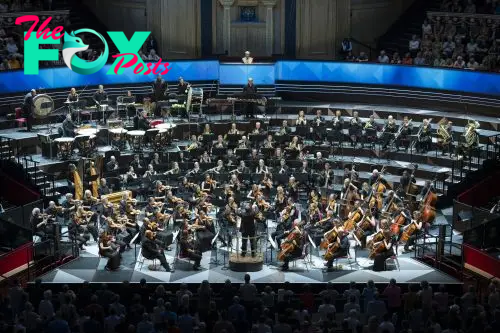
Storgårds understands the symphony’s gestural method and its inclusion of a wide range of references: marches and Mahler loom probably the most. The BBC Philharmonic’s decrease strings have extra heft than of yesteryear, which is completely acceptable to Shostakovich.
And but, for all its technical excellence and plethora of solo contributions (Roberto Giaccaglia’s bassoon and chief Zoë Beyers amongst them) and a few excellent part taking part in (violas on the opening of the second motion), this efficiency didn’t fairly overwhelm. Cacophonies have been loud tuttis (however by no means uncomfortably so); excessive contrasts have been extra marked contrasts. Frenzied counterpoint turned rigorous counterpoint. Stress sagged a bit of within the finale. The white warmth was turned down, the emotional discomfort withheld.
This Promenade promised a lot however frankly under-delivered.
Colin Clarke
-

 Entertainment7h ago
Entertainment7h agoMike and Lauren Sorrentino Introduce Baby No. 3 to Kids in ‘Jersey Shore’ Exclusive Clip
-

 Entertainment10h ago
Entertainment10h agoNatasha Rothwell on Her Memorable Firsts
-

 Entertainment16h ago
Entertainment16h agoFace Me and Other Korean Medical Crime Shows That are Must Watch
-
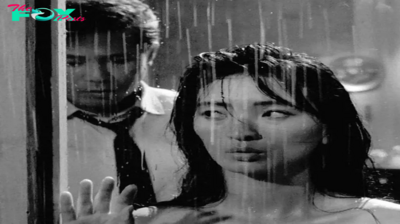
 Entertainment21h ago
Entertainment21h agoClassic Korean Movies Like Piagol to Add to Your Watch List
-

 Entertainment21h ago
Entertainment21h agoOver 60 Million People Tuned in to Watch Jake Paul vs. Mike Tyson
-

 Entertainment1d ago
Entertainment1d agoPopular Hudson Valley Italian Restaurant Addresses Closing Rumors
-

 Entertainment1d ago
Entertainment1d agoRHOBH’s Dorit Kemsley Addresses Viral Smoking Scene on Season 14 Premiere: ‘I Was Being Chased’
-
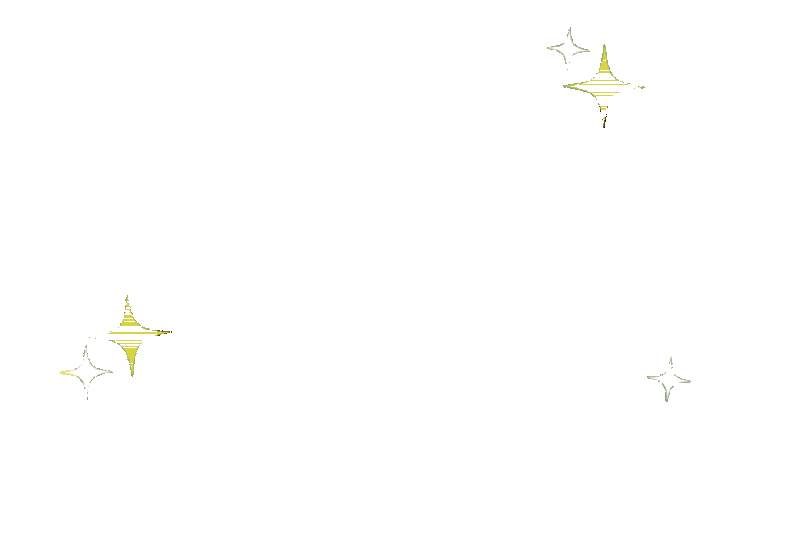
 Entertainment1d ago
Entertainment1d agoThe 10 Best Podcasts of 2024
